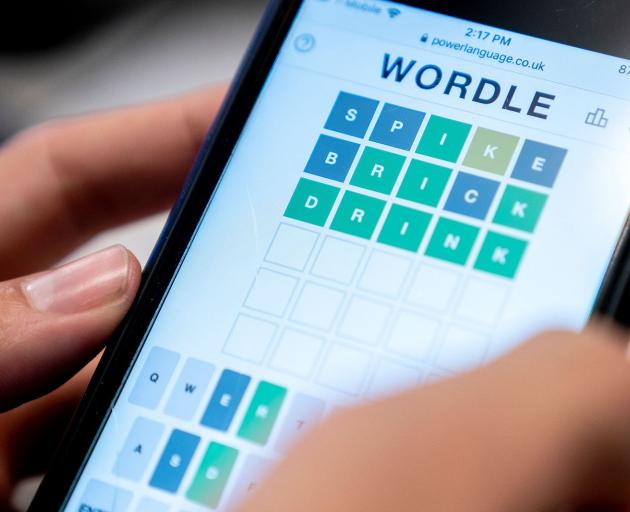
Where do you stand on sharing your Wordle results? In recent weeks, that innocuous little grid of yellow, green and black squares has become as much a staple of social media as pedantry and passive aggression; it is a cute little flashback to when people’s annoyance at online content peaked with seeing too many pictures of what a stranger had for breakfast.
The word-guessing game continues to grow and grow and millions of people are now playing it. One newish poll by Morning Consult suggested that as many as 14% of Americans have joined in and that 59% of players share their results, either "often" or "sometimes".
Whether people post often or sometimes, a kind of grid rage is growing. Perhaps it is the sudden influx, or the sense that people are showing off, or talking about something of little interest to others, all of which are about as standard on the internet as someone choosing My Way on Desert Island Discs.
MI6 chief Richard Moore caused a minor stink recently when he tweeted that he was "thinking of unfollowing those who post their Wordle results", which led to the double whammy of winning support from television presenter Anneka Rice and a jovial apology from GCHQ in the form of a mocked-up Wordle page.
I’ll admit, I had a moment. I popped over to Facebook to check in on the conspiracy theorists — odd that Facebook has seen its first ever drop in usage; I can’t think what might be putting people off — and I saw a few grids and clicked away even more hastily than usual. But then I mentioned this to my partner, who promptly told me off for being a misery.
"What’s the harm?" she said, pointing out, with irritating reasonableness, that it was quite a nice thing to do.
Much of Wordle’s appeal is its niceness. It’s not too demanding, and even when it dares to use American spellings or double-vowelled monstrosities, sharing the fact that good old Wordle is being a pain in the arse is also a very unifying thing to do. Josh Wardle, its creator, sold the game to the New York Times and it’s hard to blame him for cashing in.
"At the time it moves to the New York Times, Wordle will be free to play for new and existing players," said the buyer, although I note that it was choosing its words carefully.
— Guardian News and Media











